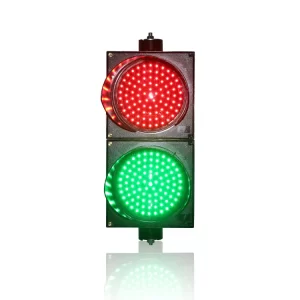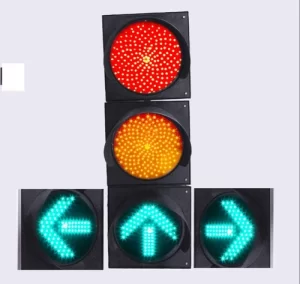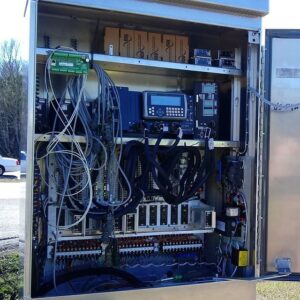Choosing the Right Traffic Signal Controller for Your City
Selecting the correct type of traffic signal controller for your city is an important decision needed to make in order to manage road effectively maintaining public safety. There are so many options and you feel like it is tough to choose the right caregiver. But, understanding the key factors and considerations can help you make an informed decision allowing for a win-win transportation infrastructure in your city. This blog further will take you through the integral factors to consider in a traffic signal controller.
Traffic Signal Controller POSTED: Before going into the selection process, we need to know what traffic signal controllers are and how they work. In simple terms traffic signal controllers are devices that regulate the flow of vehicles through intersection by deciding which set or sets of lights to switch on at any particular moment in time. They help in maintaining the traffic well and regularizing vehicles as to how they move so that there are very few chances of accidents.
Assessing Your City’s Needs
Find your city’s specific needs -The very I st step when selecting the appropriate traffic signal controller is to assess what you require in your town. Each city has different traffic patterns, volumes and infrastructure. So predicting these is immensely important Ask yourself these questions prior to taking the exam.
How many cars pass through important intersections on average?
Do you need to account for certain hours where the foot traffic increases exponentially?
Number of Intersections to be Controlled
Do you need pedestrian signals, and other things like preemption for emergency vehicles?
This will help you identify what type of traffic signal controller is most appropriate to the needs of your city.
Kinds of Traffic signal Controllers
Traffic signal controllers come in various forms and serve different purposes. The different types of research will allow you to make a more informed decision.
Fixed-Time Controllers: These controllers work on a time basis instead of receiving real-time updates about traffic. Good for predictable intersections
Real-Time Signal Controllers: These types of controllers move the time for lights according to fresh and present information got from gadgets (counters, sensors). Good where turning movements vary widely among intersections
Adaptive controllers: The best in breed, adaptive controllers leverage algorithms and real-time data to automatically adapt signal timings for optimized traffic throughput They work ideally for busy urban areas with various traffic movements.
Technology and Features.filtered
It is important to consider the technology and characteristics of different traffic signal controller before choosing one. New controllers have basic features that can radically improve the guide of individuals. Look for features such as:
Real-Time Monitoring and Data Collection: It monitors on the traffic conditions continuously to adjust signal timings.
Remote Management – Provides ability for traffic engineers to manage and adjust signals off-site to maximize efficiency, immediate response time.
Integration with Other Systems — Choose the controller that can integrate other traffic management systems, cameras and sensors
Be it any municipal project Budget is always a critical factor to take in account. Though it might be tempting to go all in on the most advanced and feature-rich model, bear in mind that price does not necessarily mean unparalleled performance. Think about more than just the up-front price — don’t forget future maintenance and operational costs. Remember to also take into account potential reductions in fuel costs due to better traffic flow and fewer congestion.
Consulting with Experts

The fact of the matter is, choosing an optimal traffic signal controller system can seem like a jigsaw puzzle which to solve requires expert input. Discuss with traffic engineers and professionals in this industry who have a rich knowledge base to offer as well. They can answer questions about tech specs and compatibility to help you select a controller that works in your city.
Protects the Investment for Demanded Future
Finally, look ahead to your city of the future. As traffic patterns and volumes can be subject to change over time, it is important you consider a solution that gives flexibility when updating or scaling out your traffic signal. Consider using controllers that work with software updates and are adaptable to new types of technology, so you can be sure your investment is still going strong for years in the future.
Conclusion
Your choice in a traffic signal controller can have an enormous impact on the safety and efficiency of your city’s roads. Armed with the understanding of specific local needs, available controllers suited to your city as well technology and feature preferences you have in mind, budget constraints for the product type that would be ideal (considering long term savings) visit an expert before making purchase. After all, the correct traffic signal controller pays off not merely with better current or near-future traffic management but also helps build a smarter transportation future.

